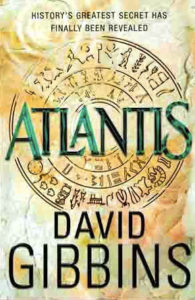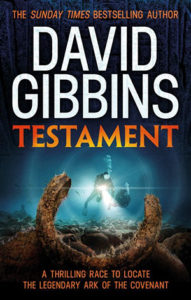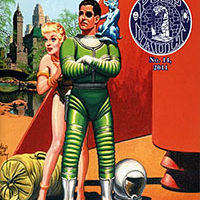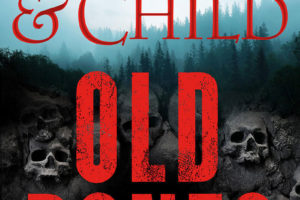 A recent techno-thriller author I’ve discovered is David Gibbins. What sets him apart is that Gibbins is an actual underwater archaeologist! So he is using his professional background to base his works of fiction.
A recent techno-thriller author I’ve discovered is David Gibbins. What sets him apart is that Gibbins is an actual underwater archaeologist! So he is using his professional background to base his works of fiction.
All his works feature fictional maritime archaeologist Jack Howard and his team. They are all contemporary thrillers and involve a plausible archaeological/historical backdrop. In fact, in the back of all the books is a section where Gibbins gives the factual background for the ideas.
The main character, Jack Howard, is head of the fictitious International Maritime University, an educational and research organization with the resources to have facilities around Europe and research vessels. His right-hand man is Costas Kazantzakis, a marine engineer (you almost have the Dirk Pitt/Al Giordino dynamic here, plus IMU kind of stands in for NUMA).
There are several other characters who recur, such as the German Egyptologist Maurice Hiebermeyer. IMU is also fortunate to be staffed with a lot of former Royal Navy personnel running their vessels and providing security.
The books so far include:
- Atlantis, 2005
- Crusader Gold, 2006
- The Lost Tomb, 2008
- The Tiger Warrior, 2009
- The Mask of Troy, 2010
- Atlantis God, 2011
- Pharoah, 2013
- Pyramid, 2014
- Testament, 2017
The works do have some internal chronology, so it’s recommended that you read them in the order they were published (I made the mistake of not doing that). This chronology is more important for the characters, but a few books tie back to prior ones.
 Atlantis has Jack and his team finding the lost continent of Atlantis — in the Black Sea. It’s known that the Black Sea was actually cut off from the Mediterranean in ancient times, and that the water level was very low. So here Atlantis was an advanced stone-age culture that existed before the Bosporus opened up and flooded it. The survivors flee to other areas, taking their culture with them. Adding to this mix, the team must deal with a dangerous Muslim fanatic.
Atlantis has Jack and his team finding the lost continent of Atlantis — in the Black Sea. It’s known that the Black Sea was actually cut off from the Mediterranean in ancient times, and that the water level was very low. So here Atlantis was an advanced stone-age culture that existed before the Bosporus opened up and flooded it. The survivors flee to other areas, taking their culture with them. Adding to this mix, the team must deal with a dangerous Muslim fanatic.
Crusader Gold has the discovery of Crusader artifacts in Istanbul, which puts them on the track of Vikings who took riches from the Temple of Solomon that wound up in Constantinople and who fled to the New World, ending up in Central America. This time the villains are a group of Nazis, after the same riches.
The Lost Tomb has them on the trail of something left behind by Emperor Claudius, who faked his death. This something is the actual written word of Jesus of Nazareth! Out to stop them is a secret Roman Catholic group that can’t allow this to be revealed. Also in this book, Jack learned he has a 15-year-old daughter he never knew about.
Tiger Warrior is one I have not yet read. Here the trail takes Jack and his team from Rome, to an Egyptian wreck, to India, and then Asia. And Jack makes another enemy, an Asian crime lord.
The Mask of Troy addresses the city of Troy. Here, new ideas about Troy lead them to a deadly discovery that ties in with the Nazis and a dangerous plague.
Atlantis God is a direct sequel to Atlantis. It addresses why some of the cultures of Central America resembled the Atlantis culture, as noted in Crusader Gold. Complicating things are two villains from prior novels working together against Jack and his associates. (See? I told you it was important to read them in order!)
Pharoah and Pyramid are next, but I have yet to read them. Both are centered in Egypt and appear to be a tied together. Testament is the most recent, which I have also yet to read.
Overall, I’ve enjoyed these works. At one level, there are similarities with the works of Clive Cussler, but we also get an overview of the real science and research background to the ideas presented, unlike what most techno thriller authors do. So check these out.




Your comments